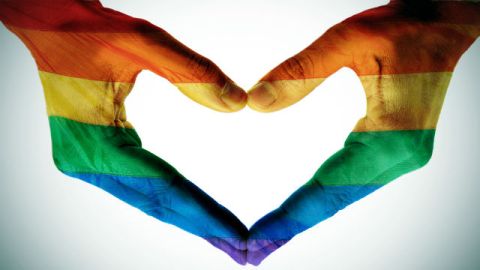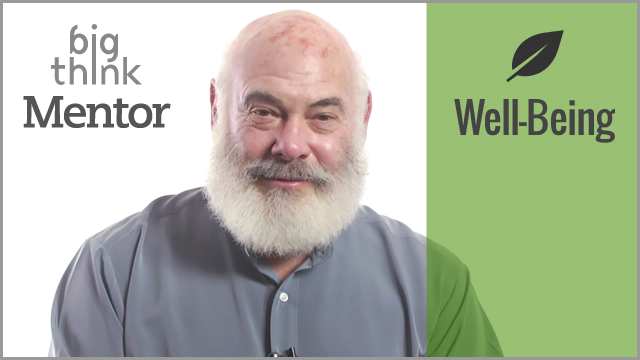How To Be Wrong Right

What’s the latest development?
Alan Chambers, the President of Exodus International, the most prominent “ex-gay” ministry, which existed largely to support efforts to “convert” people from gay to straight, has come out publicly in support of gay people and against gay conversion therapy. Exodus itself will be closing down.
Says Chambers: “Never in a million years would I intentionally hurt another person. Yet, here I sit having hurt so many by failing to acknowledge the pain some affiliated with Exodus International caused, and by failing to share the whole truth about my own story. My good intentions matter very little and fail to diminish the pain and hurt others have experienced on my watch. The good that we have done at Exodus is overshadowed by all of this.”
First, I just have to note how wonderful and heartwarming this is to see. Being able to watch the tide of public opinion of homosexuality change is an extraordinary and inspiring thing to be alive for. It gives me hope. One day I want to see a sign that simply says: “It got better.” Today, we got a little closer to that.
His apology, which is poignant and heartfelt, affirms: that gay conversion therapy is ineffective and dangerous, that the work that Exodus did caused unnecessary harm to gay people, that gay people can parent as well as straight people, that Chambers himself never overcame his own same-sex attractions, that religious condemnation of gay people is not part of a good understanding of his religion, and that he himself is culpable and was an “enemy” to gay people.
It is, in short, a perfect apology.
What’s the big idea?
There are two lessons to be learned from Chambers’ precedent of unflinching acknowledgment of wrongdoing.
The first is for other ministries, churches, institutions, and individuals which condemn homosexuality and/or try to “cure” gay people.
They can see from Chambers’ example that abandoning their views is not only possible, but is also arguably consistent with a certain strong conception of modern Christianity. They are being given what many of them do not offer, a way out. They have a path to salvation. They, of all people, should take it.
The even bigger lesson is for all of us: It is OK to be wrong.
If you didn’t before, it is really worth your time to follow that link and read the apology in full. What is so beautiful about the apology is that it respects the crucial distinction between explanation and excuse, between culpability and absolution. He simply acknowledges that he did something that was wrong, that it had bad effects and caused suffering, and that he both is guilty and feels guilty for that:
“Please know that I am deeply sorry. I am sorry for the pain and hurt many of you have experienced. I am sorry that some of you spent years working through the shame and guilt you felt when your attractions didn’t change. I am sorry we promoted sexual orientation change efforts and reparative theories about sexual orientation that stigmatized parents. I am sorry that there were times I didn’t stand up to people publicly “on my side” who called you names like sodomite—or worse. I am sorry that I, knowing some of you so well, failed to share publicly that the gay and lesbian people I know were every bit as capable of being amazing parents as the straight people that I know. I am sorry that when I celebrated a person coming to Christ and surrendering their sexuality to Him that I callously celebrated the end of relationships that broke your heart. I am sorry that I have communicated that you and your families are less than me and mine.”
He affirms the opposite of his previous belief. He says he will work to do better.
There are two ways to deal with figuring out that you are wrong. One of them is to try as hard as possible to deny it, and the other is to accept it. Let’s look at the motivations for both.
The reason people are inclined to denial that we have been wrong (and we all are so inclined) is about the past. It is unpleasant to know that we have been wrong, the more so the longer that we have been. This in large part explains the common opinion that it is nearly impossible to change an old person’s mind.
The reason that some people, like Alan Chambers, can find redemption in publicly acknowledging their former wrongness is about the future. It is better to be correct and to act rightfully for your remaining time. On that basis, I submit that, rationally, old people should be more willing to change their minds.
Following Kathryn Schultz and her fantastic book on the matter, I think it is crucial to note that there is not experience of being wrong. You cannot feel that you are wrong in the present. For, if you did think you were wrong about a view, you would not really have that view anymore. All of the experience of wrongness is of having been wrong.
The past doesn’t matter. It is unchangeable. The future is what we have power over. It is where we create who we are. Whether it’s a factual disagreement or, as with Alan Chambers, the moral issue of our generation, we all should strive to have been wrong.
Notice the two word phrase which opens in the final paragraph of Chambers’ apology:
“Moving forward, we willserve in our pluralistic culture by hosting thoughtful and safe conversations about gender and sexuality, while partnering with others to reduce fear, inspire hope, and cultivate human flourishing.”
Amen.





